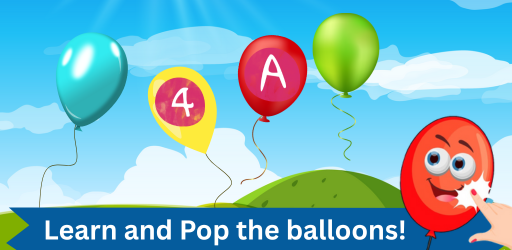Encouraging Your Child to Read
Your child’s entire health and wellbeing depend heavily on their ability to read. Reading-challenged kids run the risk of developing emotional and behavioral issues as adults. Early childhood lessons your child receives will benefit them far into adulthood. These recommendations can help you with encouraging your child to read.
Read aloud to your kid.
Learning to read requires practice for kids. Regular home reading gives your child a chance to demonstrate their abilities. It offers a secure environment for practice with a trusted adult if your child is having difficulties.
Set a good example.
For encouraging your child to read, You should read for pleasure in front of your kids. They will learn that reading is important, enjoyable, and valuable if they observe you and other family members engaging in it.
Your child’s entire health and wellbeing depend heavily on their ability to read. Reading-challenged kids run the risk of developing emotional and behavioral issues as adults. Early childhood lessons your child receives will benefit them far into adulthood. These recommendations can help you with encouraging your child to read.
Read aloud to your kid.
Learning to read requires practice for kids. Regular home reading gives your child a chance to demonstrate their abilities. It offers a secure environment for practice with a trusted adult if your child is having difficulties.
Set a good example.
For encouraging your child to read, You should read for pleasure in front of your kids. They will learn that reading is important, enjoyable, and valuable if they observe you and other family members engaging in it.
Use songs, games, and rhymes.
Storytelling and singing old tunes can both improve your child’s learning prospect while also encouraging your child to read. This is also a fantastic approach to introduce your youngster to foreign languages.
Create a library at home and also visit one often.
As soon as you can, obtain a library card for your youngster. Make them going to the library a regular occurrence. When bored, your child is more likely to pick up a book if there are more books than toys in the home.
Reduce your kid’s screen time.
you must keep a track on how much time your child spends in front of their screens including televisions, computers, tablets, smartphones, and video games. This will free up more time for reading.
Give your children some say in who and when they read.
In the event that your child chooses to read a longer book, it’s crucial Encouraging Your Child to Read. Read aloud to each other, possibly switching pages or paragraphs.

English Grammar Comprehension Grade 123
Reading comprehension fun is an educational game for younger ones. It’s aim is to make your children learn how to read the passages and answer the given question of that paragraph. Read through a range of different stories and test your comprehension with a variety of questions about the selected passages.
Offer your kid a selection of books.
Let your kid choose from a selection of books that are the correct genre and length for them. The largest (or smallest) book, or the one with the prettiest cover, may be the choice of young readers. In order to avoid looking “babyish,” students who are reading below grade level may choose books that are too challenging for them. Books for older kids with poor reading levels might occasionally be dull. Saying “You choose one, I choose one” is an excellent tactic.
captivate them with a series.
Seek advice from friends and librarians. Reading the next book can be sparked by the need to find out what happens to favorite characters. This will help in encouraging your child to read regularly.
Keep track of the books your child reads.
Remember that tracking their reading progress can motivate some kids. Don’t force them to keep a reading journal if they don’t appreciate it.
You should do your part to make sure that your child enters school with a solid foundation in language and comprehension abilities and a desire to learn to read if you want him or her to succeed in school. Your child will learn to read and have the chance to practise reading skills in valuable ways if they read for enjoyment and interest.
Frequently Asked Questions
1. What are some effective strategies for encouraging children to read and developing a love of reading?
Reading aloud, providing a variety of books, creating a regular reading routine, modeling reading, and making reading a fun activity can all be effective strategies.
2. How can parents create a reading-friendly environment at home to support their child’s reading habits?
Some ways to create a reading-friendly environment include providing a comfortable and well-lit reading area, having a variety of books available, limiting screen time, and setting aside dedicated reading time each day.
3. How can parents choose age-appropriate books and materials that will interest their child and foster a love of reading?
Parents can consult librarians, teachers, and online resources for age-appropriate recommendations, involve their child in the book selection process, and look for books on topics that interest their child.
4. What are some fun and engaging activities parents can do with their child to encourage reading, especially for reluctant readers?
Some activities include reading aloud together, playing word games, creating a reading challenge, using technology and interactive media, and encouraging reading through art and crafts.
5. Are there any online resources or apps that can be used to encourage reading and track progress?
Yes, there are various online resources and apps that can be used, such as Reading Rockets, Scholastic’s Reading Counts, Bookopolis, and Epic!











